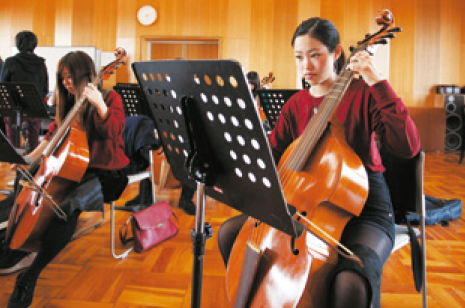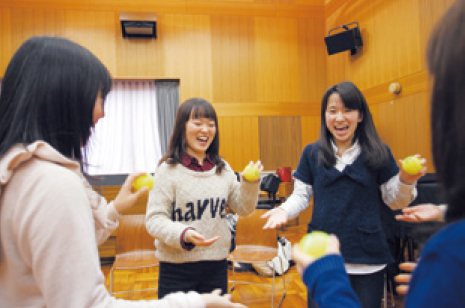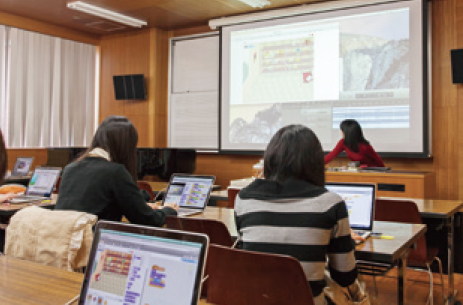Major in Theoretical Studies in Music
There are three course groups, created on the basics of western music. Their unique appeal is that they have highly-flexible curriculum, which allows for a wide range of learning, systematic learning that deepens specialized skills, and flexible course design. We will cultivate specialized music knowledge, skills, creativity, and expressiveness through courses with fully realized practices and performances, and develop human resources who can demonstrate their abilities in society based on their advanced expertise.
Musicology Course Group
Researching the affect music has on life, and the type of music that society wants.
Examples of Courses: Social Musicology, Music Psychology, Musical Aesthetics, Music History, Popular Music A/B, Jazz Music, Rock Music, Movie/Stage Music, etc.
Through courses such as Musicology, Music Analysis, Musical Aesthetics, Social Musicology and Folk (Ethnic) Music, we will discover the messages hidden in music, and explore the effect that music has on people’s lives, and the types of music that society wants.

Music Therapy Course group
Music can be useful in the fields of medical care and welfare.
Examples of Courses: Music Therapy Basics I/II, Music Therapy Discussion A/B, Music Therapy Training I/II/III, Clinical Medicine A/B, Clinical Psychology A/B, etc.
Starting with an understanding of the cultural and social backgrounds of Europe and the US, who are aggressively pursuing music as medical care, welfare, and education, students will learn the knowledge and interpersonal skills for pathology and disabilities. With course related to music therapists, students will research into the usefulness of music in the medical care and welfare fields after graduation.

Music Creation Course Group
Learn about the theory and methodology of composition, and send out music born from the soul.
Examples of Courses: Music Creation A/B, Media Creation I/II, Computer Music Creation I/II, etc.
Learn about the theory and methodology of composition, and send out music born from the soul. Listen to a lot of music and analyze the score, based on learning harmony and counterpoint. Also, by learning about orchestration and how to operate digital audio tools, we will cultivate the student’s abilities to create and produce music comprehensively.

Courses of Interest
- Social Musicology
- Students will come to understand the relationship between music and society, and music and people, while watching various video materials, and cultivate their sociological comprehension skills regarding familiar popular music and the culture surrounding it.
- Eurhythmics I/II
- Students will learn eurhythmics, one of the basic sensitivity trainings, a music education that connects music and movement. Heighten sensibilities through the process of music to movement, and moving to music.
- Music Literature Reading I - IV
- Work on the task of reading and translating English literature related to music, present the translated content, and confirm an understanding of the content. Students will increase their English vocabulary, and cultivate the basic abilities to acquire specialized English knowledge.
- Teaching Profession Piano I/II
- Assuming practice in the teaching profession, we will cultivate the musical accompaniment skills that are essential for compositions in the music education field, in accordance with singing while playing, and sheet music.





















